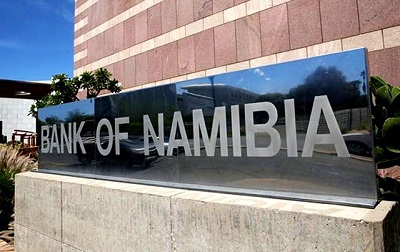
Prevention of Organised Crime Amendment Bill introduced

The Minister of Justice Yvonne Dausab recently introduced the Prevention of Organised Crime Amendment (POCA) Bill in Parliament, which seeks to amend the Prevention of Organised Crime Act 29 of 2004 and help the nation combat money laundering and the financing of terrorism.
According to Dausab, Namibia recently underwent its second peer review and mutual evaluation by the Eastern and Southern African Anti-Money Laundering Group (ESAAMLG) and Financial Action Task Force (FATF), intending to assess the country’s compliance with the Anti-Money Laundering and Combat the Financing of Terrorism and Proliferation (AML/CFT/CPF) United Nations Conventions and mandatory UN Security Council Resolutions.
Dausab said this in the National Assembly on Wednesday during the justice ministerial motivation presentation of the POCA Bill.
She said that these resolutions are issued under Chapter VII of the UN Charter, as embedded in the FATF International Standards on Combating Money Laundering and the Financing of Terrorism and Proliferation, known as the FATF recommendations, to determine the existence of any threat to the peace or act of aggression and provide guidance to maintain the said peace and security.
The minister stressed that last September, in Zambia, at the 22nd ESAAMLG Council of Ministers, a mutual evaluation report, which found that Namibia had made substantial progress since its first FATF/ESAAMLG evaluation in 2005 as far as technical compliance is concerned, was adopted.
“However, there remains significant room for improvement, especially on the overall level of effectiveness of the efforts of our nation to combat money laundering and the financing of terrorism, among others,” she explained.
According to her, the report noted in essence that, “Namibian law does not provide for stand-alone money laundering provisions, as such, the effectiveness of the competent authorities’ ability to investigate and prosecute all types of money laundering is negatively impacted. While POCA provides for the forfeiture of instrumentalities of offenses, it does not provide for instrumentalities intended for the commission of an offense.
Namibia should ensure that all LEAs, not just the NAMPOL, conduct parallel financial investigations necessary to identify potential ML cases and criminal proceeds and refrain from putting more focus on predicate offenses. Namibia should enhance the rates of confiscation of proceeds of crime consistent with her ML risks and national Anti-Money Laundering and Combatting the Financing of Terrorism Policies.”
Meanwhile, Dausab noted that following the adoption of the report, Namibia received a letter from the FATF President stating that the country has met the criteria for the FATF International Cooperation Review Group review and has entered a 12-month observation period that will end at the end of the FATF Plenary in October this year.
She added: “During these 12 months, Namibia is expected to amend or introduce laws to increase low ratings obtained for Technical Compliance and put measures and actions in place to increase the effectiveness of the AML/CFT/CPF policy and legal framework.
Should Namibia not be able to demonstrate sufficient progress at the end of the 12 months, the country may be escalated by the FATF for grey-listing, which we hope to avoid at all costs.”
On 13 December 2022, Cabinet approved the National Action Plan, aimed at addressing all the deficiencies highlighted in Namibia’s MER, which included the amendment of various laws and the introduction or fast-tracking of new Bills, according to Dausab.
“Should Namibia be grey listed by the FATF, it will come at a most inopportune time, especially in place of the recently signed Green Hydrogen Hyphen agreement and expected investments in Namibia’s oil and gas discoveries,” she said
The bill provides for multiple amendments across the Act, including the collaboration between the NAMPOL and the financial institutions to ensure access to information, the recognition of “unexplained wealth orders”, the creation of the offense of money laundering, the prevention of the smuggling of migrants into our borders, and the illicit trafficking of stolen goods, among others.
It also intends to ensure the speedy resolution of matters within the office of the Prosecutor-General, address the concerns raised by the relevant institutions, and assure that Namibia continues to stand guard against corruption and organized crime, avoid international sanctions, and steer clear of being grey-listed.










































